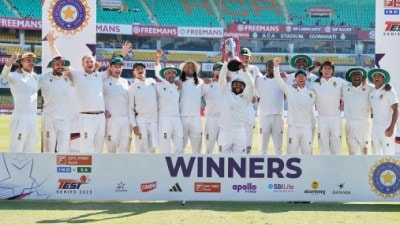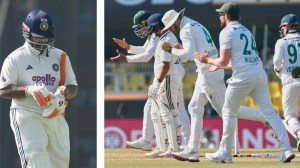If the Mahatma were here
Among the many puzzles of life that Mahatma Gandhi went through, one finds it difficult to understand this one, 130 years after his birth...

Among the many puzzles of life that Mahatma Gandhi went through, one finds it difficult to understand this one, 130 years after his birth. Gandhiji was considered a foe not only by the British whom he almost singlehandedly drove out of India but also by those who ultimately drove a bullet through him, self-styled nationalists, and Hindu, like Gandhiji. What the British could not achieve, someone like Nathuram Godse did, in the name of Hindu nationalism. And who can dare say that nationalism, often used interchangeably with patriotism, is undesirable?
Godse, like Dara Singh, the murderer of the Staines family, did not act individually. He, like Dara Singh, was part of an ideology, which Mahatma Gandhi minced no words to condemn. That is the reason he said: "In no part of the world are one nationality and one religion synonymous terms; nor has it ever been so in India. If the Hindus believe that India should be peopled only by Hindus, they are living in a dreamland."
One of the last of the Gandhians,Nirmala Deshpande, never tires of repeating that every time an attack is carried on a person working for the social upliftment of the poor and backward classes, it is a re-enactment of the Mahatma’s assassination.
The deafening silence all around on the molestation and torture of the nun in Chapara, Bihar, last month where she was forced to drink the urine of two assailants, who failed to rape her because of the strong resistance she put up, is baffling. It seems to be just another occurrence in the series of violence against Christian nuns and priests, and their places of worship. Maybe people who matter do not feel the need to condemn the incident, for, who keeps condemning any and all incidents of theft and murder? Or is it because the victims belong to the minority religion?
Mahatma — the great soul — must surely feel the agony of Sister Ruby of Chhapra who can express her agony only through her tears. Gandhiji would have wanted to speak up or perhaps undertake a fast unto death to register hisprotest at what is happening in the country at the moment.
The great pity is not that Gandhi’s movement did not catch up with the masses, but the larger public is silently watching the scene. Who has come forward to go on a fast or a satyagraha? "What has happened to their faith?" would query the Mahatma to the millions of Indians.
The social sensitivity, especially towards the poor and minorities, with which Gandhi conducted his affairs must make him wonder why his precept did not succeed in firing the passions of his people for justice, equality, peace, freedom and harmony. Is this the nation-state that he had struggled for? Did he give his life in vain? Have those three bullets fired in the lawns of Birla House in New Delhi forever silenced the conscience of modern leaders, and civil society, who remain mute as fundamentalists proceed to demolish what Gandhi tirelessly toiled to build?
Gandhiji would probably like to borrow the words of Pastor Martin Neimoler at the time of the Nazi invasion inGermany trying to create a pure race: "In Germany, they first came for the communists, I didn’t speak up because I wasn’t a communist. Then they came for the Jews, I didn’t speak up because I wasn’t a Jew. Then they came for the trade unionists, and I didn’t speak up because I wasn’t a trade unionist. Then they came for Catholics, and I didn’t speak up because I was a Protestant. Then they came for me and by that time there was no one left to speak up."
Whatever be the last cover page of Time magazine, the Mahatma is the man of the twentieth century. It is for all of us to decide if the Mahatma’s vision will permeate the twenty-first century, at least in the land of his birth, or extinct like a dying flame.



- 01
- 02
- 03
- 04
- 05




























